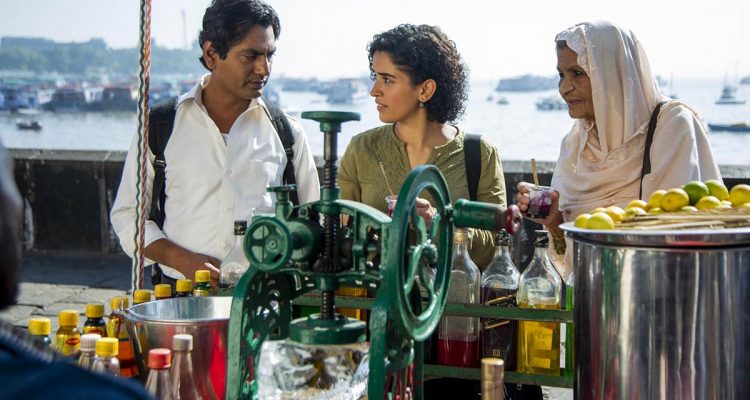After making his last two films in Britain and America, writer-director Ritesh Batra returns to India for his latest, “Photograph,” a gentle and nostalgic romantic comedy set in Mumbai. “Photograph” is a film of reconciliation; as much as they seek a significant other, the characters seek to find a balance between tradition and modernity, family and self, image and reality. While the premise may sound broad, in reality, Batra veers away from genre clichés, abstaining from easy laughs and prominent displays of emotion in favor of a meditative tone focusing on the characters’ inner lives.
READ MORE: the 100 Most Anticipated Films Of 2019
Rafi (Nawazuddin Siddiqui) works as a photographer beneath the Gateway of India in Mumbai, selling keepsakes to tourists and courting couples. He stays busy, but not busy enough to afford a place of his own or to finish paying debts his father left behind. Meanwhile, he’s besieged with messages from his overbearing but beloved grandmother Dadi (Farrukh Jaffar) in his home village; they come from many sources, but all boil down to, when will you marry? To buy himself time, he sends a picture of Miloni (Sanya Malhotra), a girl he recently photographed who vanished afterward. Dadi is overjoyed, so much so she leaves immediately to come meet his new girlfriend. Rafi is able to track down Miloni and convince her to pose as his girlfriend for Dadi’s benefit, and as they playact a relationship, a real one develops in its stead.
READ MORE: Summer Movie Preview: 35 Films You Shouldn’t Miss
From the outline of the story, it’s easy to guess that this might be presented as a conflict of old versus new, rural versus urban, but Batra‘s outlook is far more nuanced. Both characters are to some degree nostalgic, looking backward rather than forwards; they bond over similar memories of frozen treats shared with departed family members and Rafi later tracks down a bottle of Miloni’s favorite defunct cola as a gift. Both are also trying to honor their families’ wishes, perhaps at the expense of their own personal happiness, Rafi through paying his father’s debts and Miloni though taking accounting classes. In the process of meeting each other, Rafi and Miloni are able to start looking forward and articulating their own desires apart from those of their families. Yet family is never presented as a force that should be fought or escaped, but rather as a fact of life that must be accommodated.
READ MORE: 2019 Cannes Film Festival: The 21 Most Anticipated Movie
Batra is adept at showing all these considerations on the periphery of romance, yet what should be the story’s center, the actual romance between Rafi and Miloni, is lacking. Both actors successfully convey a depth of feeling beneath quiet facades, but there isn’t much overt chemistry between the two of them. Miloni, in particular, remains a bit of a cipher, surprisingly passive throughout. In contrast with the extremely reserved protagonists, Dadi is a delight of a battleax, voicing anything and everything on her mind and far too sharp to be tricked for long by Rafi’s scheme.
For a romantic comedy, “Photograph” is a little light on romance or comedy, but it makes up for this in thoughtfulness and charm. “Photograph” is a wistful, old-fashioned romance for those struggling to move forward with one foot in the past. [B]

